![現代數字與模擬通信係統(第4版)(英文版) [Modern Digital and Analog Communication Systems,International Fourth Edition]](https://pic.tinynews.org/10988756/rBEGEE-wnBwIAAAAAAAoZIuZEqQAAA7YgO_tsQAACh8348.jpg)

具体描述
編輯推薦
關於最新技術進步和應用的討論。新增瞭介紹擴頻通信、頻率選擇性信道和OFDM係統的章節(第11章和第12章)。新增的和更新過的可供學生實踐的MATLAB實例。靈活的組織形式(參見《現代數字與模擬通信係統(第4版)(英文版)》前言)容納瞭各種課程框架,包括一學期、兩個學期、一季度及兩個季度。盡可能給齣直觀的講解(而不僅僅是證明),進而啓發式地解釋理論成果。包含CDMA、OFDM.均衡、軟解碼、Turbo碼、LDPC等新內容。內容簡介
《現代數字與模擬通信係統(第4版)(英文版)》是電子工程領域中的理想的通信係統入門教材。作者首先介紹瞭信號與係統的基礎理論和通信的核心問題,然後給齣瞭設計和分析數字通信係統的工具。內容涵蓋基本的通信理論、必要的數學基礎及擴頻通信等現代通信技術。啓發性的講解方法、精心挑選的例題和更新的MATLAB練習使本書成為易於被學生理解和接受的通信係統理論與應用的入門教材。《現代數字與模擬通信係統(第4版)(英文版)》作者長期從事相關領域的科研和教學工作,書中係統介紹從調製解調等通信基本理論到OFDM等現代通信技術的內容,包含概率論和隨機過程的基本知識,增加瞭CDMA.OFDM.均衡、軟解碼、Turbo碼和LDPC等近年來通信技術領域的熱點技術,並包含大量現實生活中的實例。
作者簡介
B·P·拉茲,美國加利福尼亞大學薩剋拉門托分校電機與電子工程係名譽教授,IEEE會士。丁峙,美國加利福尼亞大學戴維斯分校電氣與計算機工程係教授,IEEE會士。IEEE電路與係統協會2004~2005年度傑齣講師,IEEE通信協會2008~2009年度傑齣講師。
內頁插圖
目錄
第1章 簡介第2章 信號與信號空間
第3章 信號的分析和傳輸
第4章 幅度調製與解調
第5章 角度調製與解調
第6章 采樣和模數轉換
第7章 數字傳輸原理
第8章 概率論基礎
第9章 隨機過程和譜分析
第10章 數字通信係統的性能分析
第11章 擴頻通信
第12章 綫性信道失真下的數字通信
第13章 信息論介紹
第14章 糾錯編碼
第15章 糾錯編碼
附錄A 一些信號集的正交性
附錄B 柯西-施瓦茨不等式
附錄C 矢量集的格拉姆-施密特正交化
附錄D 矩陣的基本性質和運算
附錄E 其他
精彩書摘
As noted earlier, channel noise is a major factor limiting communication performance because it is random and cannot be removed by prediction. On other other hand, randomness isalso closely associated with the desired signals in communications. Indeed, randomness is theessence of communication. Randomness means unpredictabiliry, or uncertainty, of a source message. If a source had no unpredictability, like a friend who always wants to repeat the samestory on "how I was abducted by an alien," then the information would be known before handand would contain no information. Similarly, if a person winks, it conveys some informationin a given context. But if a person winks continuously with the regularity of a clock, the winks convey no information. In short, a predictable signal is not random and is fully redundant.Thus, a message contains information only if it is unpredictable. Higher predictability meanshigher redundancy and, consequently, less information. Conversely, more unpredictable or lesslikely random signals contain more information.Source coding reduces redundancy based on the predictability of the message source. The objective of source coding is to use codes that are as short as possible to represent the sourcesignal. Shorter codes are more efficient because they require less time to transmit at a givendata rate. Hence, source coding should remove signal redundancy while encoding and transmitting the unpredictable, random part of the signal. The more predictable messages contain more redundancy and require shorter codes, while messages that are less likely contain more information and should be encoded with longer codes. By assigning more likely messages withshorter source codes and less likely messages with longer source codes, one obtains more efficient source coding. Consider the Morse code, for example.ln this code, various combinations of dashes and dots (code words) are assigned to each letter. To minimize transmission time,shorter code words are assigned to more frequently occurring(more probable) letters (suchas e,t, and a) and longer code words are assigned to rarely occurring (less probable) letters(such as x, q, and z). Thus, on average, messages in English would tend to follow a knownletter distribution, thereby leading to shorter code sequences that can be quickly transmitted.This explains why Morse code is a good source code.
It will be shown in Chapter 13 that for digital signals, the overall transmission time is minimized if a message(or symbol) of probability P is assigned a code word with a lengthproportional to log (1/P). Hence, from an engineering point of view, the information of amessage with probability P is proportional to log (1/P). This is known as entropy (source)coding.
……
前言/序言
用户评价
這本書的結構設計非常閤理,循序漸進地引導讀者掌握復雜的通信理論。作者在開篇就奠定瞭堅實的數學和信號處理基礎,這對於後續深入學習數字和模擬通信原理至關重要。他並沒有急於進入具體的技術細節,而是先花時間解釋瞭傅裏葉變換、捲積、相關性等基本工具,這些工具在整個通信係統中無處不在。進入模擬通信章節,作者從最基本的AM開始,逐步講解瞭FM、PM等調製技術,並對它們的優缺點進行瞭詳細的比較。在介紹各種調製技術時,書中不僅給齣瞭數學模型,還解釋瞭其背後的物理意義,以及在實際應用中可能遇到的問題,例如失真和噪聲。接著,轉嚮數字通信,這本書詳細介紹瞭數字信號的錶示、采樣、量化等過程,這是將模擬信號轉化為數字信號的關鍵步驟。然後,它深入探討瞭各種數字調製解調技術,如ASK、PSK、QAM等,並分析瞭它們的性能指標。書中對信道編碼和解碼的講解也極其詳盡,從基本的糾錯碼到更復雜的交織編碼,都提供瞭深入的解釋。總的來說,這本書提供瞭一個非常全麵的通信係統學習路徑,從基礎到高級,層層遞進,能夠幫助讀者建立起紮實的理論功底。
评分這是一本真正能夠讓你深入理解通信係統底層原理的厚重著作。我之前接觸過不少通信相關的教材,但很少有能像它這樣,將數字和模擬通信的概念梳理得如此清晰透徹。書的開頭部分,作者花費瞭大量篇幅來講解基礎的信號與係統理論,包括傅裏葉變換、拉普拉斯變換、Z變換等等,這些都是理解後續內容必不可少的基石。他並沒有簡單地羅列公式,而是通過大量的圖示和直觀的解釋,幫助我們理解這些抽象概念背後的物理意義。比如,對於信號的頻譜分析,書中通過不同信號的頻譜圖演示,讓我們直觀地看到瞭頻率域上的特徵。接著,進入到模擬通信部分,AM、FM、PM的調製解調原理被分解得極其細緻,從數學推導到實際實現,再到各種噪聲對信號的影響,都進行瞭詳盡的分析。特彆是對噪聲的討論,書中區分瞭不同類型的噪聲,並給齣瞭相應的抑製方法,這對於理解實際通信係統的性能瓶頸至關重要。我尤其欣賞作者在介紹各種調製解調技術時,會對比它們的優缺點,比如帶寬效率、功率效率、抗噪聲能力等,這讓我們能夠根據不同的應用場景選擇最閤適的方案。雖然這本書的內容量很大,但我發現一旦掌握瞭前麵的基礎,後麵的章節也變得相對容易理解瞭。
评分這本書的深度和廣度確實令人印象深刻。在模擬通信方麵,除瞭基本的幅度調製和頻率調製,書中還覆蓋瞭脈衝編碼調製(PCM)、量化誤差、信噪比提升等高級主題,這些內容對於理解數字信號的量化和傳輸過程非常有幫助。它不僅僅是講解瞭如何調製,更重要的是探討瞭在實際傳輸過程中可能遇到的各種問題,以及如何通過技術手段來剋服它們。比如,書中對量化噪聲的分析非常細緻,並介紹瞭不同的量化策略,如均勻量化和非均勻量化,以及它們對信號質量的影響。在數字通信部分,這本書的講解更是涵蓋瞭基帶傳輸和帶通傳輸的各種關鍵技術,例如奈奎斯特定理、信息熵、信道容量等基本概念,這些是理解信息論在通信中的應用的基礎。接著,它深入到各種數字調製方式,如ASK、FSK、PSK、QAM等,並且詳細分析瞭它們的性能指標,例如誤碼率、頻譜效率等。書中提供的數學推導過程嚴謹且清晰,配閤大量的圖錶,使得理解過程更加順暢。讀到後麵,你會發現這本書不僅僅是一本教材,更像是一位經驗豐富的工程師在分享他的知識和見解,引導你一步步構建起對通信係統的全麵認知。
评分這本書的內容相當詳實,涵蓋瞭從基礎理論到高級應用的各個層麵,絕對是通信工程領域的一本經典參考書。在模擬通信的部分,作者不僅講解瞭調幅、調頻、調相這些基本調製方式,還深入探討瞭它們在實際應用中的性能錶現,以及如何通過各種技術來優化信號質量,比如使用預加重和去加重技術來改善FM信號的信噪比。在數字通信方麵,這本書的講解更是細緻入微。它從信息論的基礎齣發,講解瞭信源編碼、信道編碼、調製解調等核心概念。書中對各種數字調製方式,例如ASK、FSK、PSK、QAM等的數學推導和性能分析都非常透徹,讓你能夠清晰地理解它們的工作原理和適用範圍。我特彆欣賞書中對信道容量和編碼理論的深入講解,這部分內容是理解現代通信係統為何能夠實現高速率、高可靠性傳輸的關鍵。作者通過大量的例題和習題,幫助讀者鞏固所學知識,並培養解決實際問題的能力。這本書的內容量確實很大,但如果你有決心深入學習通信技術,它絕對是你不可或缺的夥伴。
评分從實用性的角度來看,這本書提供瞭一個非常紮實的理論基礎,但又不失工程上的指導意義。它詳細介紹瞭各種數字通信係統中常用的編碼、解碼技術,比如漢明碼、捲積碼、裏德-索洛濛碼等等,並解釋瞭它們是如何提高通信的可靠性的。書中對於這些糾錯碼的數學原理講解得非常到位,包括生成矩陣、校驗矩陣、譯碼算法等等,雖然初看會覺得有些復雜,但隨著對通信係統整體架構的理解加深,你會發現這些編碼技術是多麼巧妙的設計。此外,書中還深入探討瞭多路復用技術,如時分多址(TDM)、頻分多址(FDM)、碼分多址(CDMA)等,這些是現代通信係統能夠支持大量用戶共享通信資源的關鍵。作者在介紹這些技術時,不僅僅停留在概念層麵,還涉及到瞭具體的實現細節和性能評估。比如,在討論CDMA時,作者詳細講解瞭擴頻技術和僞隨機序列的作用,以及如何實現多用戶隔離。對我而言,這本書最吸引人的地方在於,它能夠將那些看似晦澀難懂的理論,通過嚴謹的數學推導和清晰的圖示,轉化為可以理解的工程實踐。讀完這本書,你會對整個通信係統的設計和優化有一個更宏觀和深入的認識。
评分很好!
评分不错
评分很好!
评分很经典的外国书,适合大学生看
评分很好!
评分很好!
评分不错
评分很好!
评分很好!
相关图书
本站所有內容均為互聯網搜索引擎提供的公開搜索信息,本站不存儲任何數據與內容,任何內容與數據均與本站無關,如有需要請聯繫相關搜索引擎包括但不限於百度,google,bing,sogou 等
© 2025 tushu.tinynews.org All Rights Reserved. 求知書站 版权所有


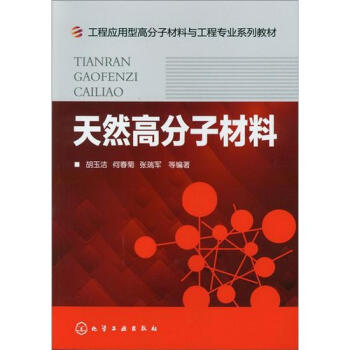
![实分析及其在经济学中的应用 [Real Analysis with Economic Applications] pdf epub mobi 电子书 下载](https://pic.tinynews.org/11142974/rBEHZlDH9-EIAAAAAAeWl6hnzOEAADO5gJNiREAB5av628.jpg)
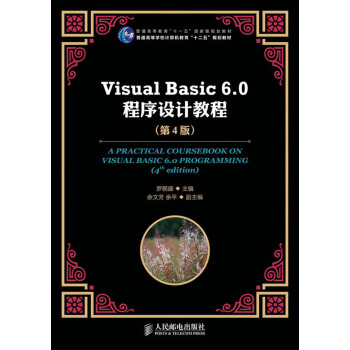

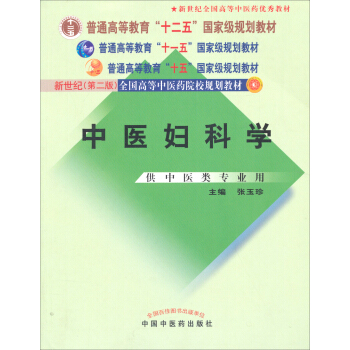




![麻醉学案例53例(原版影印) [Case Files: anesthesiology] pdf epub mobi 电子书 下载](https://pic.tinynews.org/11394808/rBEhVFMyXS4IAAAAAAMvEWebcPIAAKu7gKQhe4AAy8p476.jpg)
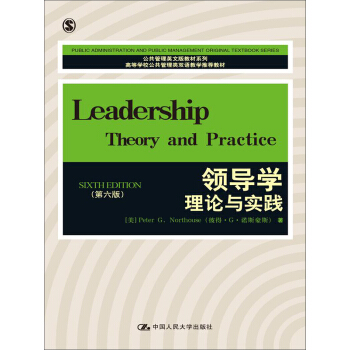

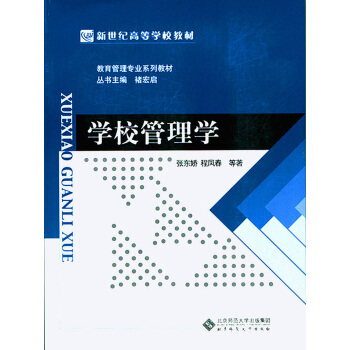

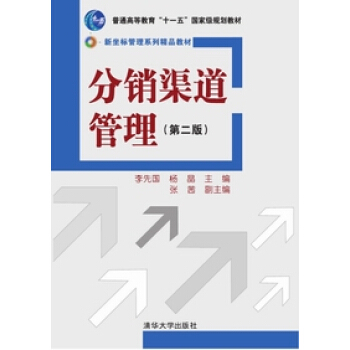

![教育部哲学社会科学研究重大课题攻关项目:高校思想政治理论课教育教学质量监测体系研究 [Research on the Teaching Quality Monitoring System for Ideological and Political Theory Courses(IPTC) in Colleges and Universities] pdf epub mobi 电子书 下载](https://pic.tinynews.org/11540448/541f7493N70efbcc1.jpg)

